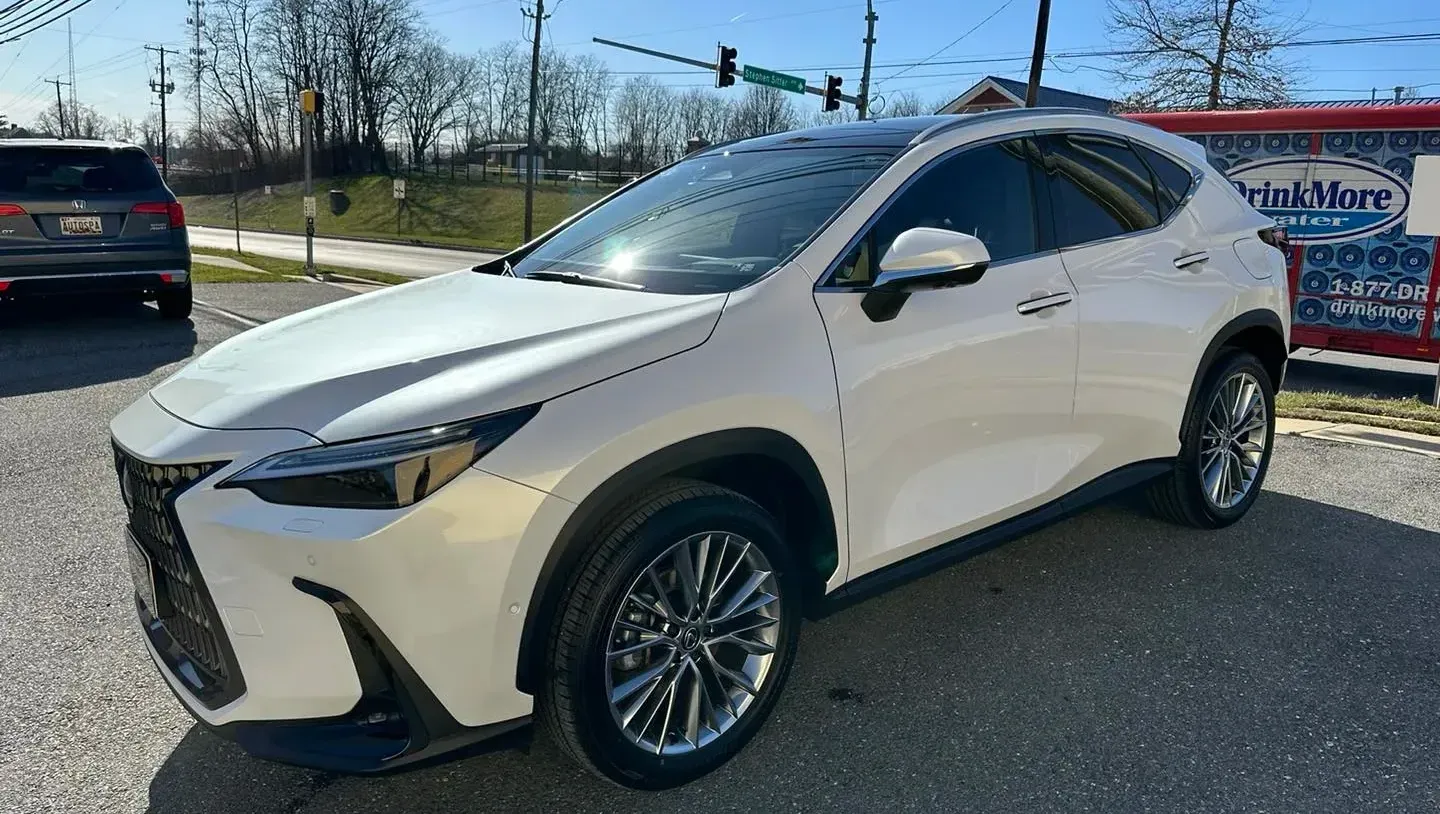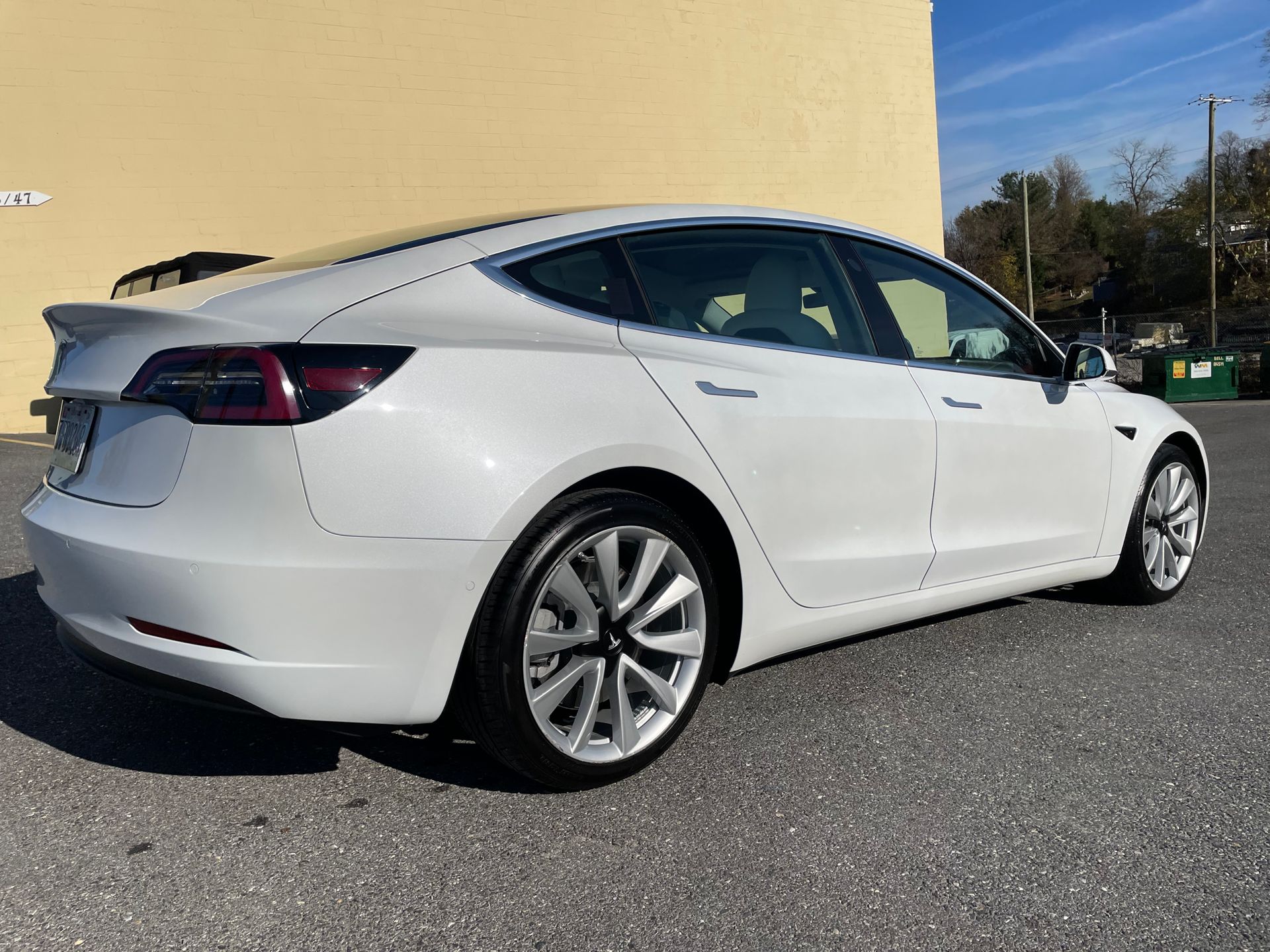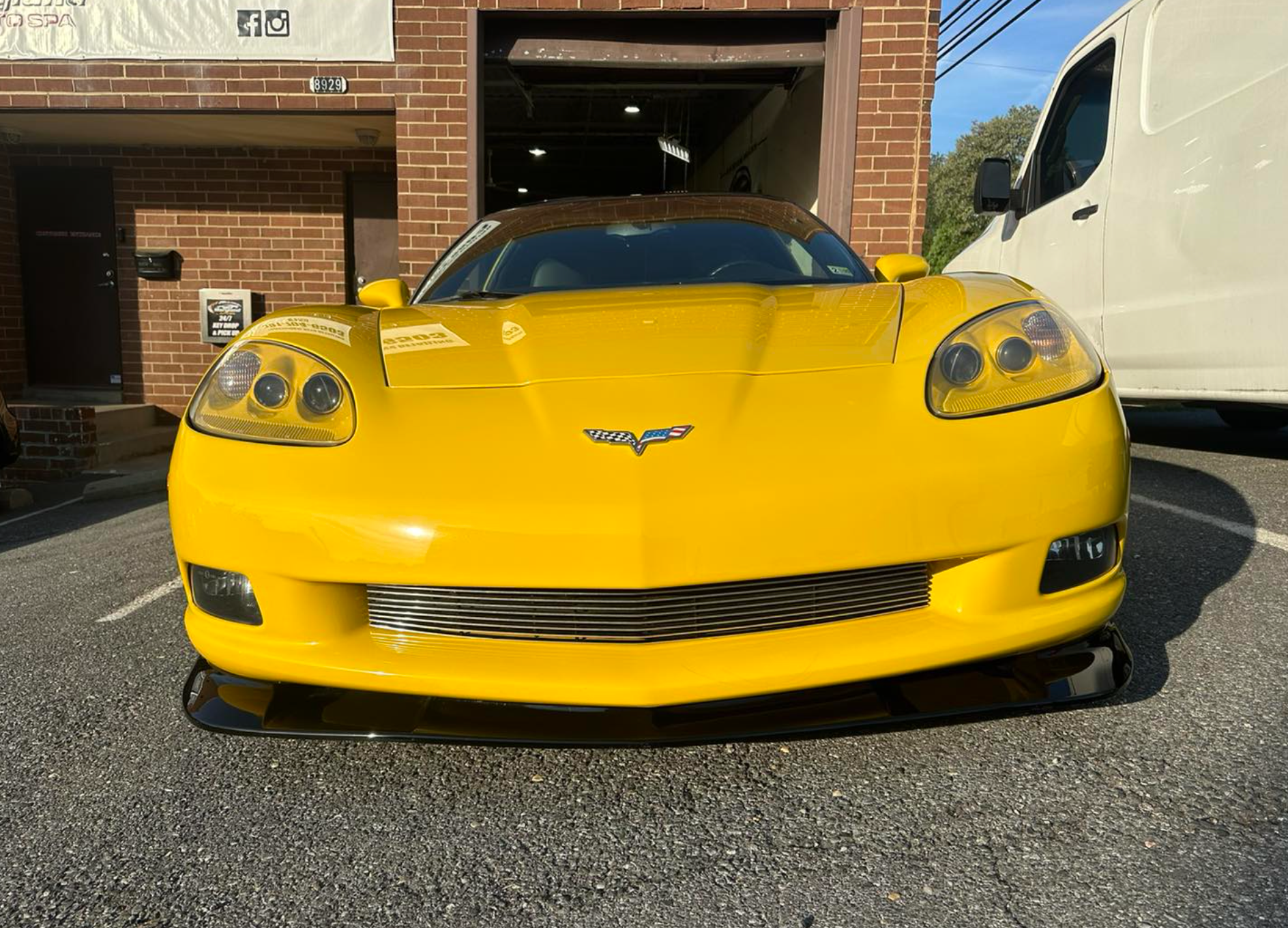The Top Reasons Why DIY Paint Protection Film Is a Bad Idea for Your Car
SCHEDULE ONLINE GET A FREE ESTIMATEYou've likely spent hours researching ways to protect your car's gleaming finish and
paint protection film (PPF) seems like the ultimate solution. However, the thought of tackling this complex task yourself may be a bit daunting. DIY PPF applications often result in problems such as air bubbles, misalignment, and poor adhesion—issues that can mar your vehicle's appearance rather than preserve it.
By contrast, professional installations utilize specialized tools and precise techniques developed through extensive training and experience. At Maryland Auto Spa, our experts meticulously stretch and position the film to fit perfectly over every curve of your vehicle. This precision ensures that your car not only maintains its aesthetic appeal but also benefits from maximum protection—something that’s difficult to achieve on your own without risking costly errors. In this blog, we will discuss why DIY paint protection film is a bad idea!
The Problems with DIY Paint Protection Films
So, why exactly is embarking on a DIY paint protection film (PPF) installation potentially problematic? One of the primary challenges lies in the intricate application process. This involves industry-grade tools and expertise in handling complex film applications to achieve flawless results.
The lack of specialized tools typically utilized during professional installations means that air bubbles and misalignments often occur. These imperfections compromise the protective layer's integrity and aesthetic appeal.
Even improper adhesion becomes a significant concern. Without the knowledge to gauge appropriate film tension and maneuverability, it’s easy to have sections improperly stick or lift over time. This means that instead of properly shielding your vehicle from pesky rock chips and scratches, your paint protection film could wind up looking uneven and downright unappealing.
Overall, without utilizing professional skill sets and equipment, the pristine finish and optimal protection provided by PPF become increasingly challenging to achieve.
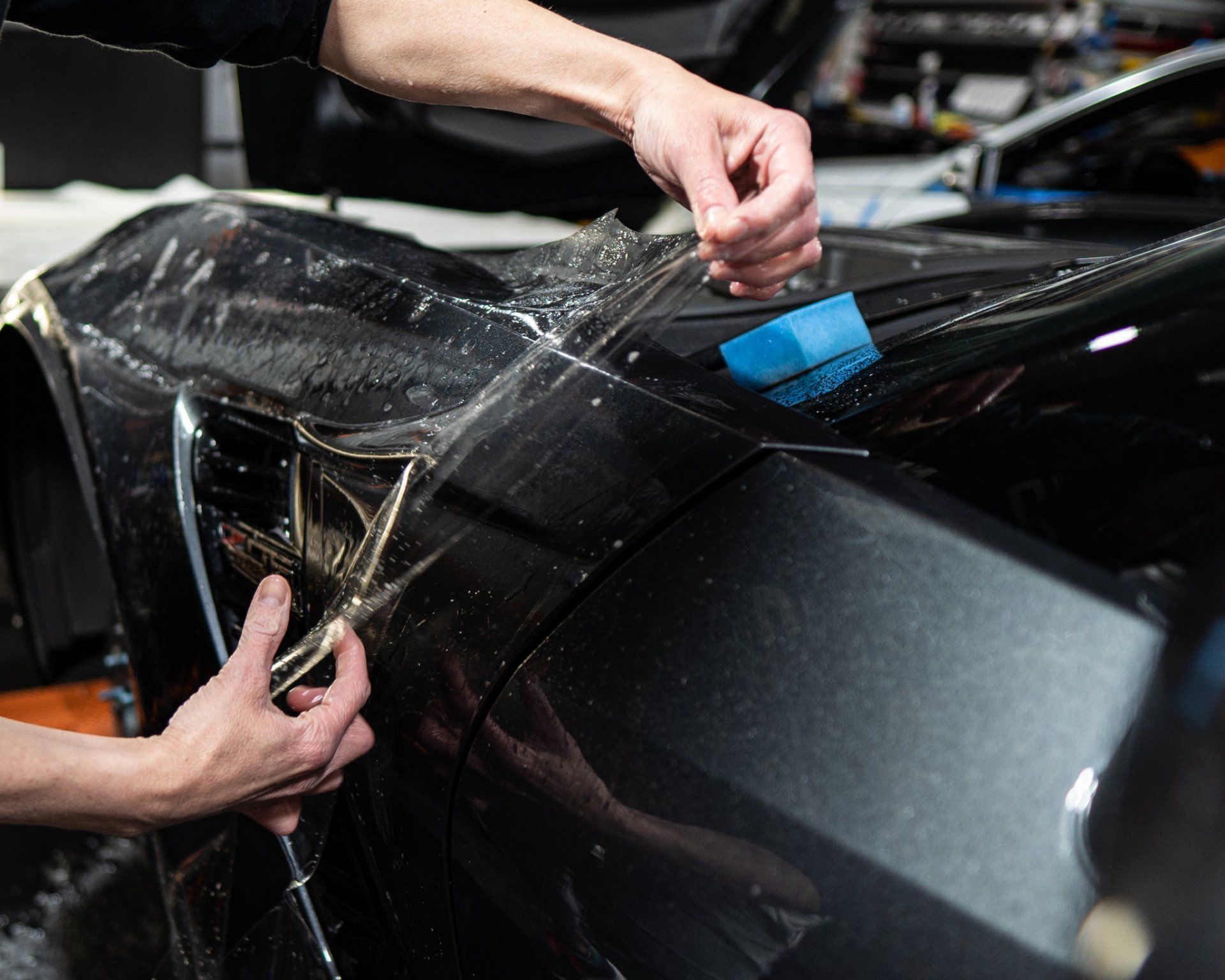
Surface Damage Risks
It's easy to underestimate how tricky it is to apply paint protection film correctly. The unexpected seems to always rear its head—surface scratches can develop from dust particles trapped under the film during installation. Improper stretching and positioning of the film can result in adhesive residues and peeling, which, when met with harsh environmental elements, worsens the situation.
Furthermore, let's talk about adhesive residues—you might think they're just leftover bits of stickiness, but they pose a much bigger threat. If not removed properly, these residues can cause discoloration on your vehicle's exterior. Not exactly a look you'd want for your prized possession!
Cost vs. Result: DIY vs. Professional
When it comes to applying paint protection film (PPF) to your car, the prospect of saving money by doing it yourself might be enticing. However, it's essential to consider the potential drawbacks of DIY kits.
Sure, DIY kits may initially seem cost-effective, but they have the potential for costly mistakes. Precision and expertise are crucial during PPF installation. Errors in the installation process can result in misalignment, bubbles, and decreased durability, leading to additional expenses in the long run if you need to redo the entire process.
Statistics show that professional installations have a much higher success rate and longevity compared to DIY attempts. The experience and training of professional installers ensure a higher-quality application. Moreover, professionally installed PPF often comes with warranties that DIY kits lack. These provide financial security by addressing any issues with the film without additional costs.
Professionally installed PPF can offer added value and peace of mind while providing financial security against future problems. So, while upfront costs for professional PPF installation may seem higher than a DIY kit, the investment pays off regarding quality, longevity, and financial security.
Quality Challenges in DIY Installations
When it comes to your car, ensuring its paint protection film is of the highest quality is crucial. When you opt for a professional service like that offered by Maryland Auto Spa, you can rest assured that the film used is top-notch and expertly applied. However, if you choose the DIY route, there are several challenges you might encounter in terms of quality and durability.
One of the biggest problems with some DIY paint protection film kits is the use of inferior, low-quality films. These low-grade films may degrade quickly and lose their protective properties over time, leaving your car's paint vulnerable to the harmful effects of environmental elements such as UV rays, bird droppings, tree sap, and more. This can result in a compromised appearance and reduced protection for your vehicle's exterior.
The trouble with using cheap DIY kits is that they often result in short-term solutions for long-term problems. While the upfront cost might be appealing, the drawbacks in terms of durability and protection are significant and can end up costing you more in the long run due to potential repairs or premature replacement.
Moreover, another challenge with DIY installations is achieving proper adherence to the vehicle's contours. Applying paint protection film requires skill and precision to ensure that it conforms seamlessly to every curve, edge, and recess of the car's exterior. Without professional expertise, achieving this level of fitment can be extremely challenging. Misapplication can lead to unsightly gaps or bubbles in the film, compromising both its appearance and functionality.
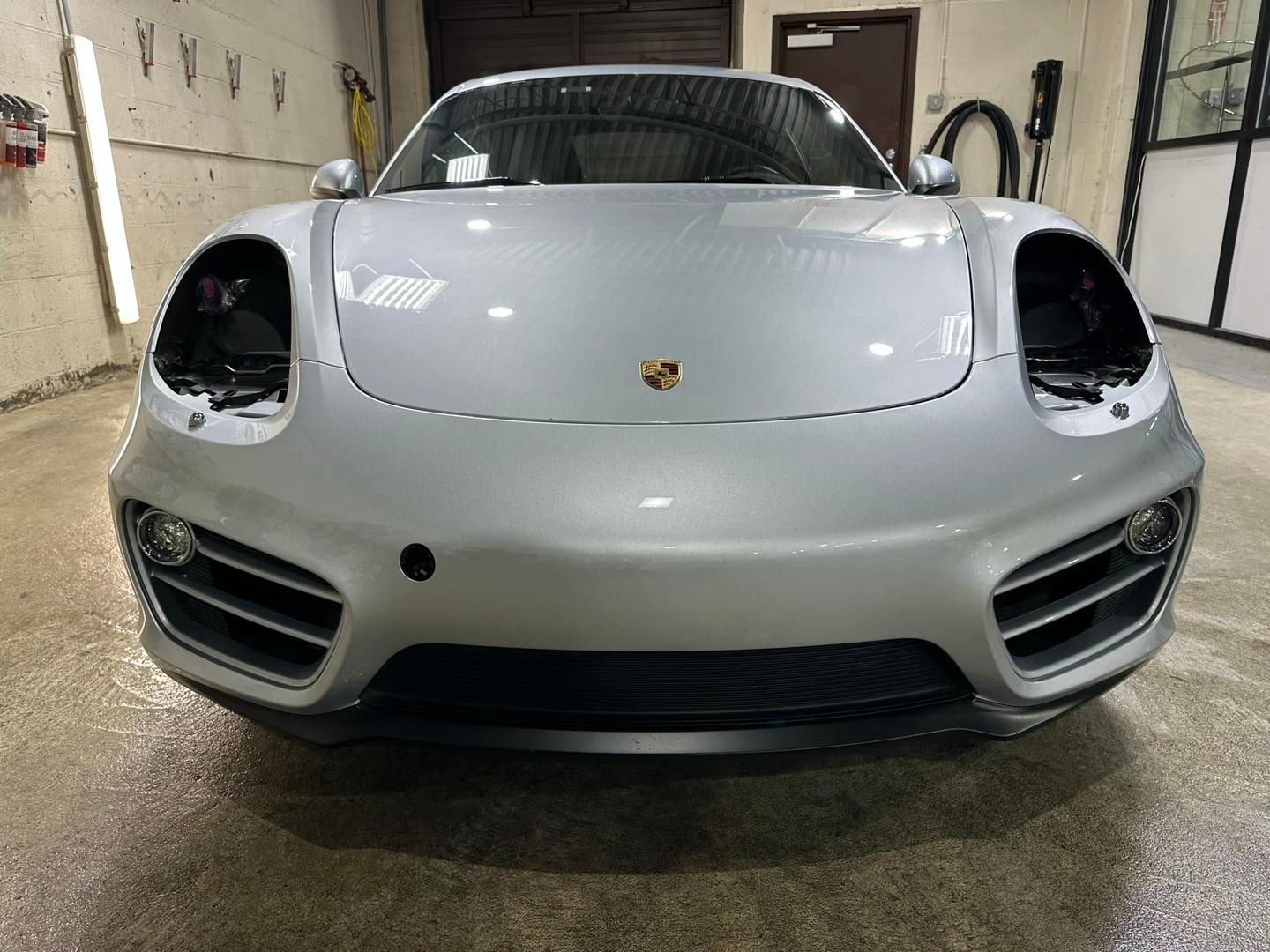
Safety Issues in Self-Application
When dealing with paint protection film (PPF) installation, safety risks that DIY enthusiasts should seriously consider come into play. PPF installation incorporates the use of adhesives and cutting tools, which can pose potential hazards when not handled properly. These dangers include exposure to harmful chemicals found in the adhesives and the risk of injury from cutting tools.
Adhesives used in PPF installation may contain chemicals that are harmful if inhaled or come into contact with the skin. The fumes from these adhesives can cause respiratory problems, dizziness, or headaches, especially in poorly ventilated spaces. Mishandling these chemicals can also cause skin irritation or burns.
Professional installers are trained to handle these materials safely, always using protective equipment and ventilation systems to mitigate any health risks. This ensures that both the installers and your vehicle are safeguarded from potential harm. Even though certain types of PPF may contain milder chemicals, ensuring proper ventilation remains paramount to minimizing health risks during the installation process.
By entrusting professionals with the installation of your paint protection film, you're not only ensuring a flawless application but also prioritizing your safety and well-being.
Expert Recommendations for Proper Paint Protection Film
When it comes to safeguarding your car's paint from road debris, UV rays, and environmental contaminants, ensuring the job is done properly is paramount. This is where professional installation truly shines. Certified technicians at Maryland Auto Spa have extensive knowledge about different film types, understand the nuances of various vehicle surfaces, and are highly skilled in dealing with the environmental factors that can impact film performance.
It's not just about slapping on a protective film—it's about understanding the specific requirements of each vehicle and applying the right techniques to ensure optimal protection. Professionals take into account every aspect—from the condition of the paint to the shape and curves of your vehicle—ensuring a perfect fit and finish. This attention to detail is something that truly sets professional installers apart from DIY attempts.
Besides technical expertise, professional installers also emphasize customer service. Skilled professionals communicate with car owners throughout the process, addressing any concerns and providing guidance about post-installation care to maximize the performance and longevity of the protective film.
Ultimately, when it comes to safeguarding your car's paint with PPF, choosing professional installation ensures that you benefit from superior knowledge, hands-on experience, and unparalleled customer support—a combination that yields optimal protection for your prized possession.
When it comes to your car's paint protection needs, don't compromise on quality and expertise.
Contact Maryland Auto Spa at (301) 704-6503 for expert advice and top-tier installation services.

